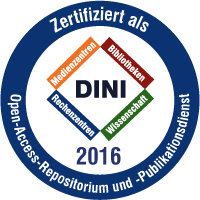Cómo crear ediciones digitales académicas entre La Habana y Berlín : el caso de Proyecto Humboldt Digital (ProHD)
- Los estudios sobre el escritor y naturalista prusiano Alexander von Humboldt y las ediciones de su obra son abundantes. Entre los múltiples capítulos destacados de su famoso viaje por los trópicos americanos destacan las dos visitas a Cuba (1800–1801/1804) como un caso particular. Hasta el día son muy escasos los documentos originales que se conocen acerca de estas visitas, las fuentes coloniales que lo informaron y la historia de su recepción. Esto se debe, en gran parte, a que las fuentes documentales son de difícil acceso. Para salvar este obstáculo nació en 2019 el Proyecto Humboldt Digital (ProHD), una iniciativa de cooperación llevada a cabo entre La Habana y Berlín, que tiene por objetivo principal editar una colección de textos relacionados con la estancia de Humboldt en Cuba. En este artículo explicamos cómo se han creado las ediciones digitales académicas desde un punto de vista metodológico. Tras presentar los orígenes del proyecto, se expone el flujo de trabajo ideado entre la Oficina del Historiador de la Ciudad de La Habana y la Academia de Ciencias y Humanidades de Berlín-Brandeburgo a fin de digitalizar, describir, publicar, editar y preservar en formato digital una colección de textos previamente seleccionados. Asimismo, se describe el modelo de representación de datos en formato TEI y se justifica de manera crítica el uso de las herramientas empleadas para codificar y publicar las ediciones. Por último, se analizan los primeros resultados editoriales obtenidos y se reflexiona en las conclusiones sobre los principales desafíos afrontados.
- Studies on the Prussian writer and naturalist Alexander von Humboldt and editions of his work are abundant. Among the many outstanding chapters of his famous journey through the American tropics, the two visits to Cuba (1800–1801/1804) stand out as a particular case. To this day very few original documents are known about his actual visits, the colonial sources that informed him and the history of his reception. This is due, in large part, to the fact that documentary sources are difficult to access. To overcome this difficulty, the Project Humboldt Digital was born in 2019, a cooperation project carried out between Havana and Berlin, whose main objective is to publish a collection of texts related to Humboldt’s stay in Cuba. In this article we aim to explain how our digital scholarly editions have been created from a methodological point of view. After outlining the origins, we present the workflow developed between the Oficina del Historiador de la Ciudad de La Habana and the Berlin-Brandenburg Academy of Sciences and Humanities to digitize, describe, publish, edit and preserve in digital format a collection of previously selected texts. Also, we describe the model of data representation in TEI format, as well as the tools employed to encode and publish the editions. Finally, we analyze the first editorial results obtained and offer some conclusions on the main challenges faced.
| Author: | Antonio Rojas-CastroORCiD, Grisel Terrón, Alaina Solernou, Tobias KraftORCiD |
|---|---|
| URN: | urn:nbn:de:kobv:b4-opus4-39049 |
| ISSN: | 2162-5603 |
| Parent Title (English): | Journal of the Text Encoding Initiative ; 14.2023 |
| Document Type: | Article |
| Language: | Spanish |
| Date of Publication (online): | 2023/12/19 |
| Publishing Institution: | Berlin-Brandenburgische Akademie der Wissenschaften |
| Creating Corporation: | BBAW |
| Contributing Corporation: | Oficina del Historiador de la Ciudad de La Habana |
| Release Date: | 2024/01/16 |
| Tag: | Herramientas; Modelado de datos; TEI Publisher; ediarum |
| First Page: | 1 |
| Last Page: | 26 |
| Institutes: | BBAW / Drittmittelprojekt Proyecto Humboldt Digital |
| Licence (German): |  Creative Commons - CC BY - Namensnennung 4.0 International Creative Commons - CC BY - Namensnennung 4.0 International |




